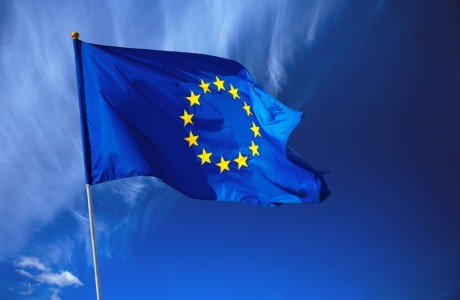European Union governments tightened sanctions on Iran in a clampdown on the country’s nuclear program, while divisions festered over a possible halt to purchases of Iranian oil.
Following up on penalties imposed by the U.S. last month, the EU added 180 Iranian officials and companies to a blacklist and started work on sanctions on the country’s oil exports, banks, transport sector and the Revolutionary Guard Corps.
“Greece has a certain number of reservations” about an oil cutoff, French Foreign Minister Alain Juppe told reporters at a EU meeting in Brussels today. “We have to take account of them and work with the different partners so that the interruption of Iranian deliveries can be offset by higher production in other countries.”
Renewed international pressure brought the diplomatic tangle over Iran’s nuclear ambitions into a decisive phase, potentially igniting tensions in the Middle East that might threaten the flow of oil to the increasingly fragile world economy.
Europe joined the U.S. in deepening Iran’s political and economic isolation as the furor continued over this week’s sacking of the U.K.embassy in Tehran– a provocation that European officials said had the blessing of Iran’s government.
Europe was “appalled and alarmed” by the embassy attack, Swedish Foreign Minister Carl Bildt said. “That is a very worrying sign of certain political forces and trends in Iran.”
Names of the 37 people and 143 companies and groups placed on the blacklist will be released tomorrow. In a statement, the EU said the measures will strike at Iran’s nuclear program, the Islamic Republic of Iran Shipping Line and members and affiliates of the Revolutionary Guard Corps.
The EU will freeze the assets of the targets and bar them from travelling to Europe. With France’s Juppe calling for “tough and unprecedented sanctions” on Iranian banks and the oil business, the ministers aimed to hammer out the tougher measures by their next meeting in January.
EU foreign policy Chief Catherine Ashton declined to say whether an oil-purchase halt will be part of the package. Speaking to reporters afterward, she said the bloc will “look at a range of issues including the energy sector, but the detail of exactly what shall be done now goes into the technical experts.”
Tumult in the Muslim world has pushed up oil prices this year, with Libya’s rebellion boosting the price of European benchmark Brent crude to more than $125 a barrel in April. Brent has risen 16 percent this year and traded at $110.40 a barrel at 3:25 p.m. in London.
“The energy sector is certainly an area that has to be worked on and the financial area overall,” German Foreign Minister Guido Westerwelle said. “There are links to Europe that from our perspective have to be severed. What’s most important is to dry up the financial sources for the nuclear program.”
The latest confrontation was triggered by a Nov. 8 report by United Nations atomic inspectors that drew on “credible” intelligence to argue that Iran’s efforts to build a nuclear bomb “may be ongoing.”
The U.S., which has spearheaded efforts to contain Iran since the country’s 2003 admission that it covered up nuclear work, took the lead on the latest round of sanctions as well.Iran denies Western allegations that it is seeking to build nuclear weapons.
On Nov. 21, the Obama administration declared the entire Iranian financial sector, including its central bank, guilty of money laundering and imposed curbs on suppliers of goods or services to Iran’s energy industries.
Iranis the third-largest oil supplier in the Organization of Petroleum Exporting Countries, earning $56 billion in the first seven months of 2011, according to U.S. Energy Department estimates.Iran pumped 3.6 million barrels a day last month, a Bloomberg survey showed.
European restrictions would cut into Iran’s oil revenue, probably forcing it to sell more cheaply to refiners in Asia, its biggest market, Olivier Jakob, managing director at Oberwil, Switzerland-based Petromatrix GmbH, said in a Nov. 28 note to investors.



